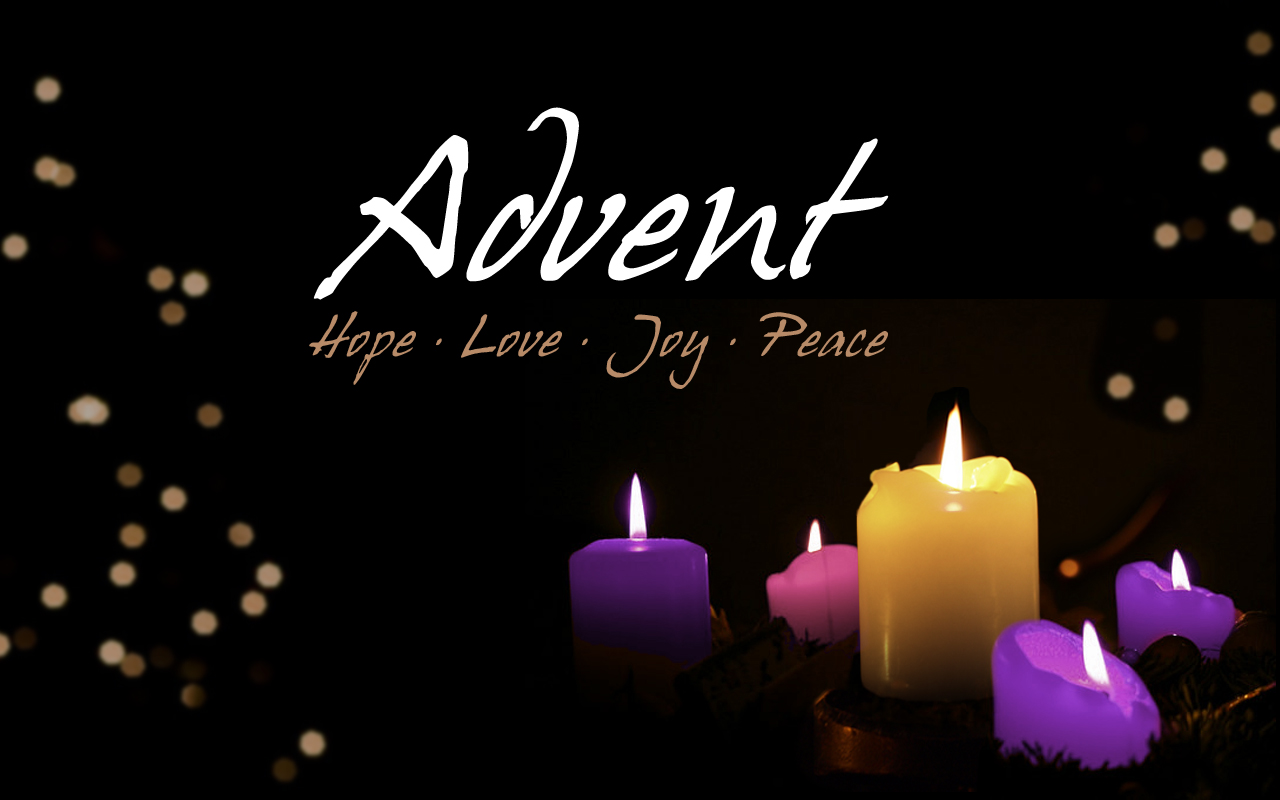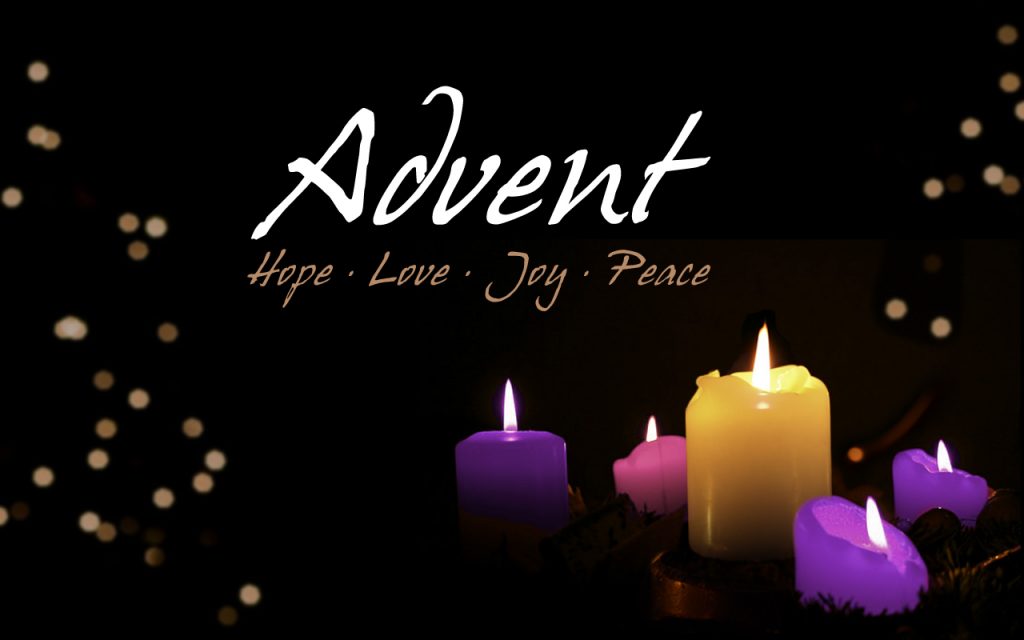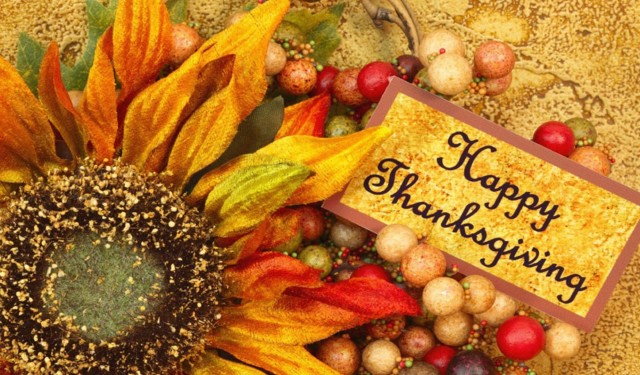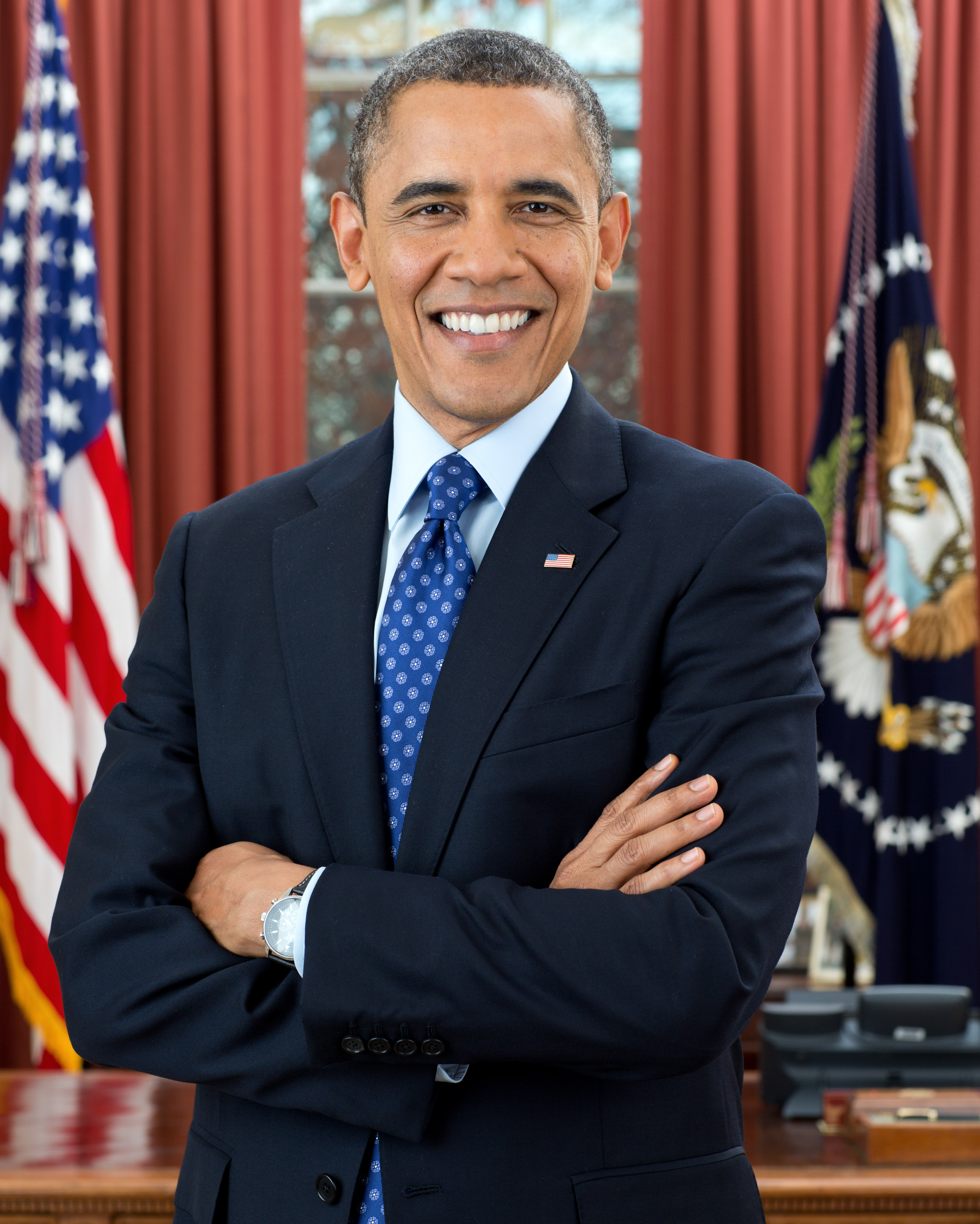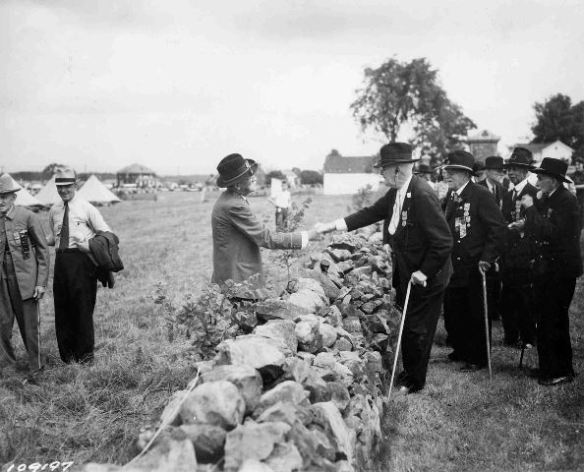Waiting, Watchfulness, Expectation, Longing, Preparation, Hope these are all words that we can use to describe the Season we are beginning today. Today not only do we start a new Liturgical year in the Church but we start a period of hopeful expectation for the coming of the Christ Child. We cannot run roughshod over this season to get to the good stuff at the end. We cannot have the dinner without peeling the potatoes; we have to prepare. The season of Advent is designed to do just that.
Our world is moving faster and faster each and every day. With the click of a button, the words I am speaking now can be sent around the world in a Nano second. I look at this as a good thing; it means that we can reach many many more people with our words of hope than we ever could before. Harnessing the tools that we have at our disposal is what Jesus meant when he told us to go into ALL the world to spread his Good News message of Hope.
But there is also the downside to all of this, not only can we spread our message of hope in a Nanosecond others can spread their message of doom and gloom in the same amount of time. But we cannot despair as our message is the greatest story ever told, but we cannot rush the preparation of that story, we need to slow down a little, and that is what Advent is for.
This season we begin today has all but disappeared off the calendar, we go right from Thanksgiving to Christmas, without stopping off at Advent ever for the briefest of times. The Church provides for us these seasons for a reason, and we should not rush them.
The Scripture readings provided for us during this time allow us to settle our minds and our hearts and focus on the spiritual part of what is to come. The focus should not be on the latest deal or how early I can get to the store so I can buy the most recent gadget that in a months’ time will be broken or cast aside for something new. This is a period when the Church is saying slow down while the world tells us to speed up. Just like the story of the rich man who asked Jesus what he needed to do to enter the Kingdom of heaven, there is nothing wrong with possessions if kept in their proper place. If buying the next thing, or going to the latest party keeps us from the spiritual then they are not in their proper place. There is no war on Christmas, but there is a war on Advent!
Each week a different family comes forward to the wreath and lights another candle. The flame at the top of each of those candles, regardless of the color, reminds us that we are the light for the darkened world. Just like we will do here on Christmas Eve, and we will also do during the Easter Season, the lighting of the candle is a constant reminder that we are the ones who need to bring that light out into the darkened world. But we cannot do that if we have not prepared.
Each week of the Advent season present us with a different theme. Hope, Love, Joy, and Peace. Boy can our community, our world even, use a little of each of those. But Advent is not a season about changing the world; Advent is a season about our personal change, a reshuffling of our priorities to make each one of us a little more hopeful, loving, joyful, and peaceful. Each of these things begins with each of us and spreads out from us just as a pebble is thrown in the water, and we watch as the circles flow out from it, these things, Hope, Love, Joy, and Peace spread from us as individuals and from us as a Church community.
This week our focus is on that of Hope. We are a people of hope; we have to be! Our hope comes from the promise that God loves each and every one of us, just as we are right here at this moment. We feel the warmth of the heat the comes from the candles of our Advent Wreath, that is more than just a symbol, that heat is the love of God that is spread to each one of us and that we must spread to others. We must have hope in this world that sometimes has no hope. We have to be the positive ones in a world that has become cynical and downtrodden.
When I think of hope, I think of the character of Bob Cratchit from the Charles Dickens story a Christmas Carole. Cratchit has nothing to be hopeful for. He worked for, what only can be described as an awful man. Mr. Scoodge had nothing in his life. Everyone he knew and loved was gone, and he only looked at what was left as people who wanted something from them. But there was faithful Bob Cratchit coming to work every day and returning home to his loving family. Scrooge changed when he was faced not only with his past and present but with his future; he was able to change because he was offered hope, hope that if he did alter the future that he saw would be much different.
We do not have the luxury of Mr. Scroodge and his ability to time travel, we know what our past was but that does not have to determine our future nor the future of others, we can, and need to be, the ones who bring this idea of hope to others and that comes from all of us knowing that God loves us, and God forgives us. No matter who you are, no matter where you are on life’s journey, you are welcome here. Those have to be more than words; we have to mean them with our whole heart.
We read in the Scripture today of the followers of Jesus waiting for the Second Coming. While Jesus was alive, he told those following him that he was going to return. The only thing was he did not tell them when. Of course, they thought Jesus was going to return in their lifetime, well there have been many lifetimes since then, and well, no Jesus, or is there no Jesus? Let’s come back to that.
During my lifetime there have been many who say that they know when Jesus is coming and each time they have been proven wrong. Jesus tells us that he does not even know when he will return only God knows when that will happen. These false prophets even go so far as to advise their followers to sell or give everything away so that they will be ready, and then, nothing. How many souls have been damaged by these false prophets leading their flock down the wrong path?
But we have the responsibility to be Jesus in this world not in the future but right here and right now. Very soon there will be all sorts of talk of the so-called “war on Christmas.” We will be all consumed by coffee cups and what people say and point fingers and long for days of old. But what if we turned our attention away from what the world wants to distract us with and we focused on being Jesus right here and right now? What if when wished Happy Holidays we just say thank you, and perhaps return the gesture with our greeting. What if when we go and buy overpriced coffee, we are just grateful for being able to afford that coffee in the first place and rather than getting all worked up by the color of the cup we put a little extra in the red kettle of the Salvation Army. The world wants to distract us; the world wants us to focus on things of no consequence when we should be focused on being Christ.
Want to keep Christ in Christmas? Feed the hungry, clothe the naked, forgive the guilty, welcome the unwanted, care for the ill, love your enemies, and do unto other as you would have done unto you. In other words be hopeful, be loving, be joyful, and be peaceful. This is how we keep Christ in Christmas, and this is how we bring hope and light to the world.

